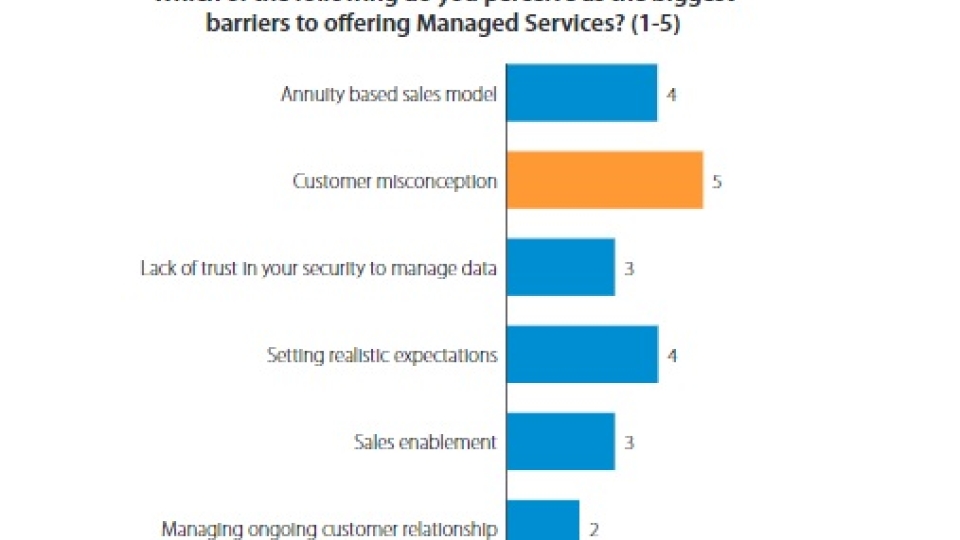
It should be an open goal, with rising use of managed services, but providers are having to deal with a high level of misconception, especially among SMB customers. A new study into the UK market as part of MSP Day 2018, by Barracuda MSP, highlights the rising expectations, but also some of the issues. Managed services are widely adopted with 95% of channel partners in the survey are actively developing managed services, while 83% of SMEs are using them.
The drivers for managed services adoption among SMEs are led by the desire to reduce capex and other costs (65%), increase efficiency (50%), overcome internal skills shortages (47%) and address security concerns (30%).
For channel partners, managed services is the top revenue opportunity for both 2018 and 2019 and their customers among the SMEs expect full-scale adoption to increase. But managed service offerings are broad while much adoption remains narrow, says the study. A third of customers still only use a single service from their MSP so there is plenty of room to grow.
The services most commonly offered by MSPs don’t match the services most commonly purchased by SMEs. As in other surveys, the top requirement is Backup, Business Continuity, and Disaster Recovery, followed by Network Monitoring and Management, and then Productivity Application (Office 365).
The true extent to which customers really do understand the MSP market is still a concern among channel professionals. In any case, the current level of understanding among SMEs clearly isn’t high enough for the 42% of MSPs who cite “customer misconception” as the single biggest barrier to offering managed services. Other barriers cited by MSPS include “Setting realistic expectations” and even “the annuity-based sales model”, though it is not clear if this is a problem for the MSP sales force or the customer.
As an idea, managed services appears to be working: The SME experience of MSP provision is largely positive, with 88 percent of respondents feeling that managed services have met or exceeded expectations. A total of 38% stated that it was “much better than expected”. But the top reasons to reject the MSP’s advances is a “lack of trust to handle data” showing that the managed services industry needs to counter some of the bad press around hacking and data security with some positive indications of what it can offer. Overall security concerns is also the top “opportunity” to sell managed services, so there is clearly a message which vendors need to push as well.
Industry analyst Clive Longbottom comments on the study: “The MSPs and channel must also up their game in selling the value of such services to the SME: they are currently seen as ‘insurance policies’ against something happening, and can be neglected when cost is a focus, rather than seeing them as business investments around such areas as brand management, information control and a greater capability to deal with suppliers and customers in an open yet secure manner. Indeed, the SME fear of not having their data directly under their own control continues: 83% of those not using managed services state that this is because they have a lack of trust in third parties dealing with their data. MSPs and the channel have to step up to the plate on this and explain how customer data is secured through the use of encryption, data leak prevention and other services such as digital rights management.”
More information on MSP day here
These issues and more will be discussed at the European Managed Services and Hosting Summit, May 29th in Amsterdam; free to qualifying MSPs. Register here


